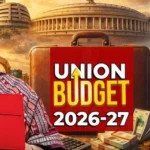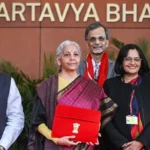Congress leader Pawan Khera on Thursday slammed the Centre over the next-generation GST reforms, saying the government took eight years to follow Rahul Gandhi’s advice.
In a post on X, Khera wrote: “When they finally have to follow @RahulGandhi’s advice, why do they take so much time in doing that?” He also shared old posts of Rahul Gandhi, where the Congress leader had urged for an 18% GST cap, stressing that a lower rate would ease the burden on the poor and businesses alike.
Senior Congress leader and Rajya Sabha MP P. Chidambaram also criticised the reforms as being “eight years too late.” In a post on X, he said the GST’s original design and rates should not have been introduced in the first place, adding that the opposition had warned against them for years but was ignored. “The rationalisation and rate cuts are welcome but 8 years too late. We cried hoarse against the GST design and high rates, but our pleas fell on deaf ears,” Chidambaram said.
He further questioned the timing of the reforms, suggesting multiple possible triggers—from sluggish growth, rising household debt and falling savings, to the upcoming Bihar elections and U.S. tariffs on Indian goods.
Finance Minister Nirmala Sitharaman, meanwhile, announced sweeping GST rate cuts at the 56th GST Council meeting, aimed at providing relief to households, farmers, businesses, and the healthcare sector. The Council decided to merge the 12% and 28% slabs into two main slabs—5% and 18%—effective September 22.
-
5% slab: Essential goods and services, including food items (butter, ghee, cheese, pre-packaged namkeens), agricultural equipment (drip irrigation systems, sprinklers, tractors), handicrafts, sewing machines, and medical equipment.
-
18% slab: Standard rate for most goods and services, including small cars, motorcycles (up to 350cc), electronic items, household goods, and auto parts.
-
40% slab: Luxury and sin goods such as tobacco, pan masala, aerated beverages, high-end cars, luxury motorcycles (above 350cc), yachts, and helicopters.
-
Exemptions: Individual health, family floater, and life insurance premiums, as well as certain education and healthcare services.








